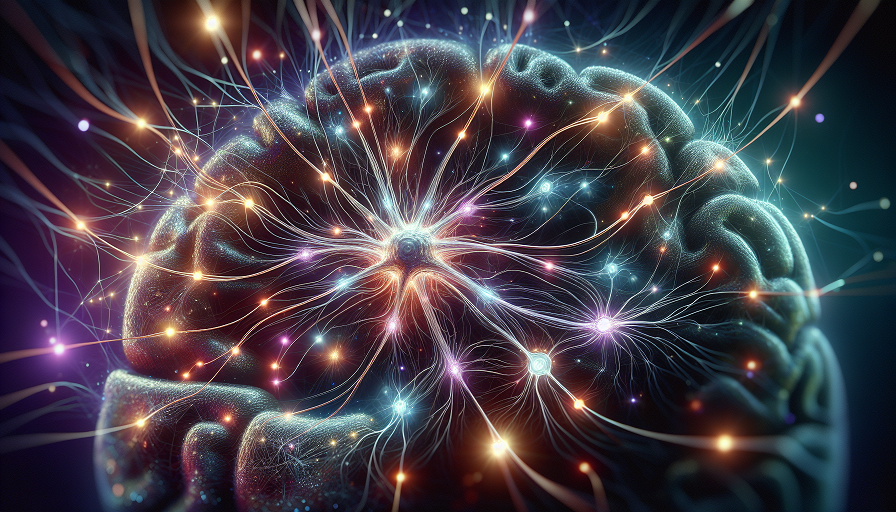
Have you ever wished your brain could operate at full throttle all day long like a high-performance machine? Many people have turned to nootropics—supplements that aim to boost cognitive function, memory, creativity, and even motivation. But as you ponder boosting your brain, it’s natural to wonder, “Am I still the same me on nootropics?” In this exploration, we aim to uncover the effects of these cognitive enhancers while reflecting on the profound question of identity.
Contents
Understanding Nootropics: What Are They?
Before diving deep into the implications on identity, it’s essential to grasp what nootropics are. Nootropics, often called “smart drugs,” are substances that people consume with the belief that they can enhance various aspects of mental function. The word “nootropic” actually originates from two Greek words: “nous,” meaning mind, and “trepein,” meaning to bend or turn. This gives you an idea of these substances’ intended effect: bending the capabilities of your mind.
Nootropics can be naturally occurring substances like caffeine, as well as synthetic compounds. Some popular nootropics include:
- Caffeine: A well-known stimulant found in coffee and tea that can enhance alertness.
- L-theanine: Commonly found in tea, it is said to promote relaxation without drowsiness.
- Omega-3 fatty acids: Present in fish oil, they are believed to support brain health.
- Racetams: Synthetic cognitive enhancers thought to improve memory and attention.
While these supplements are popular, the scientific community is still investigating their efficacy and long-term effects.
How Do Nootropics Affect Our Brains?
The primary role of nootropics is to interact with our brain’s neurochemistry. They are believed to increase the availability of neurotransmitters, enzymes, and hormones, which can alter how information is processed. Some nootropics increase blood flow to the brain, while others are thought to protect brain cells from damage.
For example, caffeine is known to block adenosine receptors in the brain. Adenosine typically promotes relaxation and drowsiness, which is why blocking it can lead to increased alertness. On the other hand, L-theanine can increase levels of calming neurotransmitters like GABA and serotonin. When combined, as they often are in tea, they can deliver a balanced boost without the jitters sometimes caused by caffeine.
Short-term Effects
In the short term, users of nootropics may notice improvements in focus, memory retention, or mood. These effects can be beneficial for tasks requiring intense concentration, such as studying for an exam or working through a complex project.
Long-term Effects
Long-term effects of nootropic use are less understood, as many studies are still ongoing. Some experts express concerns that long-term use could potentially lead to dependency, changes in brain chemistry, or unforeseen side effects. Being mindful and cautious about the dosage and frequency of nootropic use is crucial.
The Identity Question: Are You Still You?
Using nootropics to alter brain function naturally sparks philosophical and psychological questions about identity. If a pill can make you more focused or less anxious, does that change who you fundamentally are?
Let’s explore some perspectives to unravel this question:
Enhancing What’s Already There
One perspective is that nootropics merely enhance the abilities that are already present in the brain. In this sense, taking nootropics is no different than learning new skills or practicing meditation to improve focus. These enhancers might be viewed as tools that help you become the “best version” of yourself.
Creating a New You?
On the flip side, some argue that by changing brain chemistry, nootropics might sculpt an individual that differs from the original self. If your personality or cognitive style changes due to external substances, it could be akin to becoming a different person on a neurological level. For instance, if anxiety no longer shapes decision-making, is that altering one’s identity?
The debate around identity and nootropics also touches on ethical concerns. If nootropics become widely accepted, could there be societal pressure to “enhance” our brains, just like we strive to eat healthy and exercise? Would students or employees feel compelled to use them to stay ahead?
Moreover, personal implications concern how we perceive ourselves. If using nootropics becomes part of daily life, it might affect one’s self-image. Are accomplishments taken on nootropics less valid, or do they count just as much?
Making Informed Choices
Ultimately, the decision to use nootropics should be a well-informed one. Here are some points to consider:
- Research: Delve into current studies and understand what is known and not known about specific nootropics.
- Consult Professionals: Speak with a healthcare provider to understand potential risks and benefits.
- Self-reflection: Reflect on why you’re considering nootropics. What goals are you trying to achieve, and are there other ways to reach them?
- Legal and Safety Considerations: Ensure that the nootropics you’re considering are legal in your region and sourced from reputable providers.
Navigating the world of cognitive enhancement is a personal journey, with significant questions about who we are and who we want to be. As you explore this path, remember that the essence of your identity is multifaceted, shaped by a blend of biology, experience, and choice.

